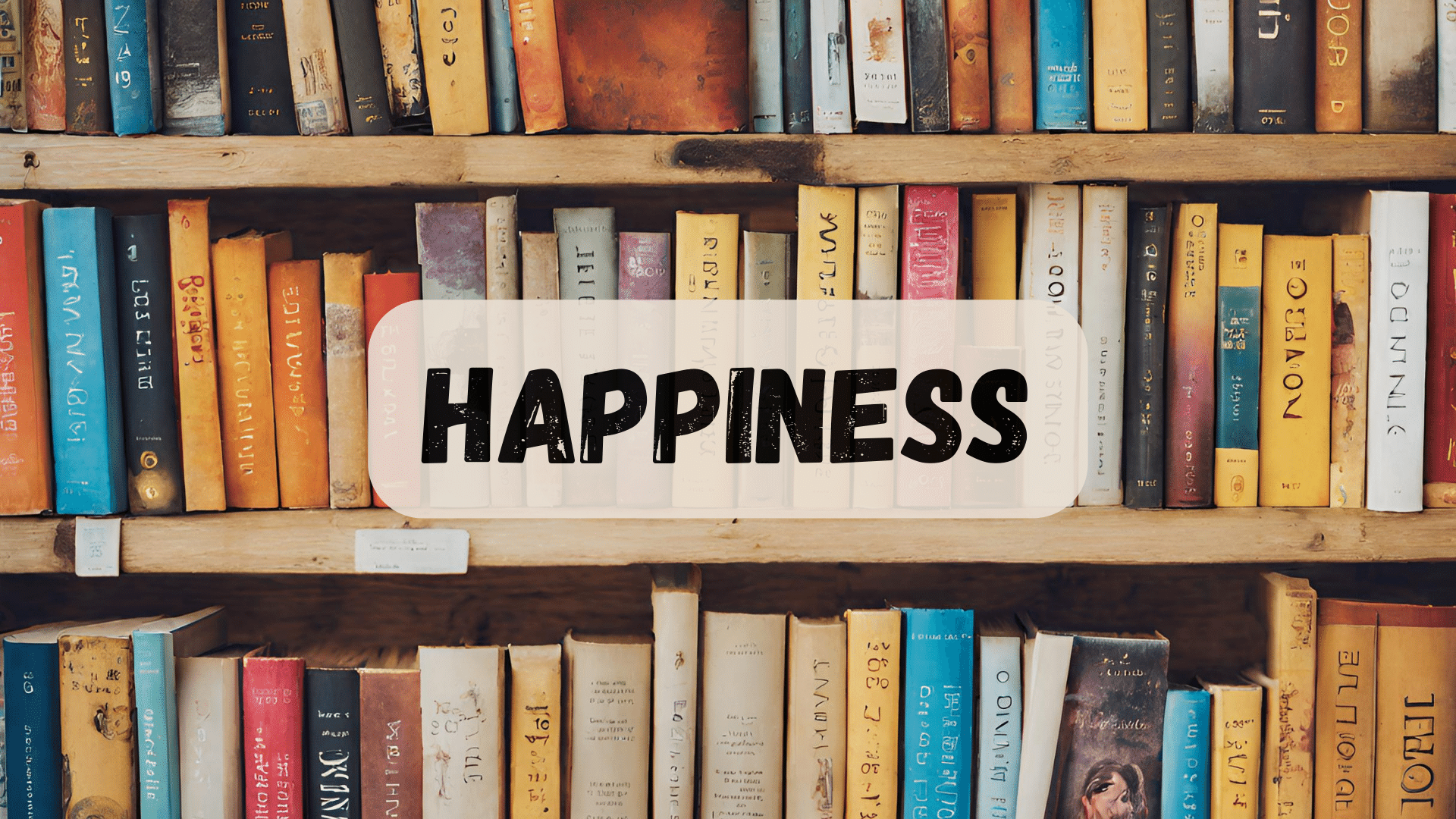
|
This post may contain affiliate links, which means that we may receive a commission if you make a purchase using these links. As an Amazon Associate, we earn commission from qualifying purchases.
In the pursuit of happiness, literature has proven to be an invaluable companion. Books have the power to inspire, enlighten, and offer solace.
On this page, we will take you on a literary journey, to explore 15 must-read books that promise to uplift your spirits and provide insights into the myriad facets of happiness.
Table of Contents
1. The Happiness Project
by Gretchen Rubin
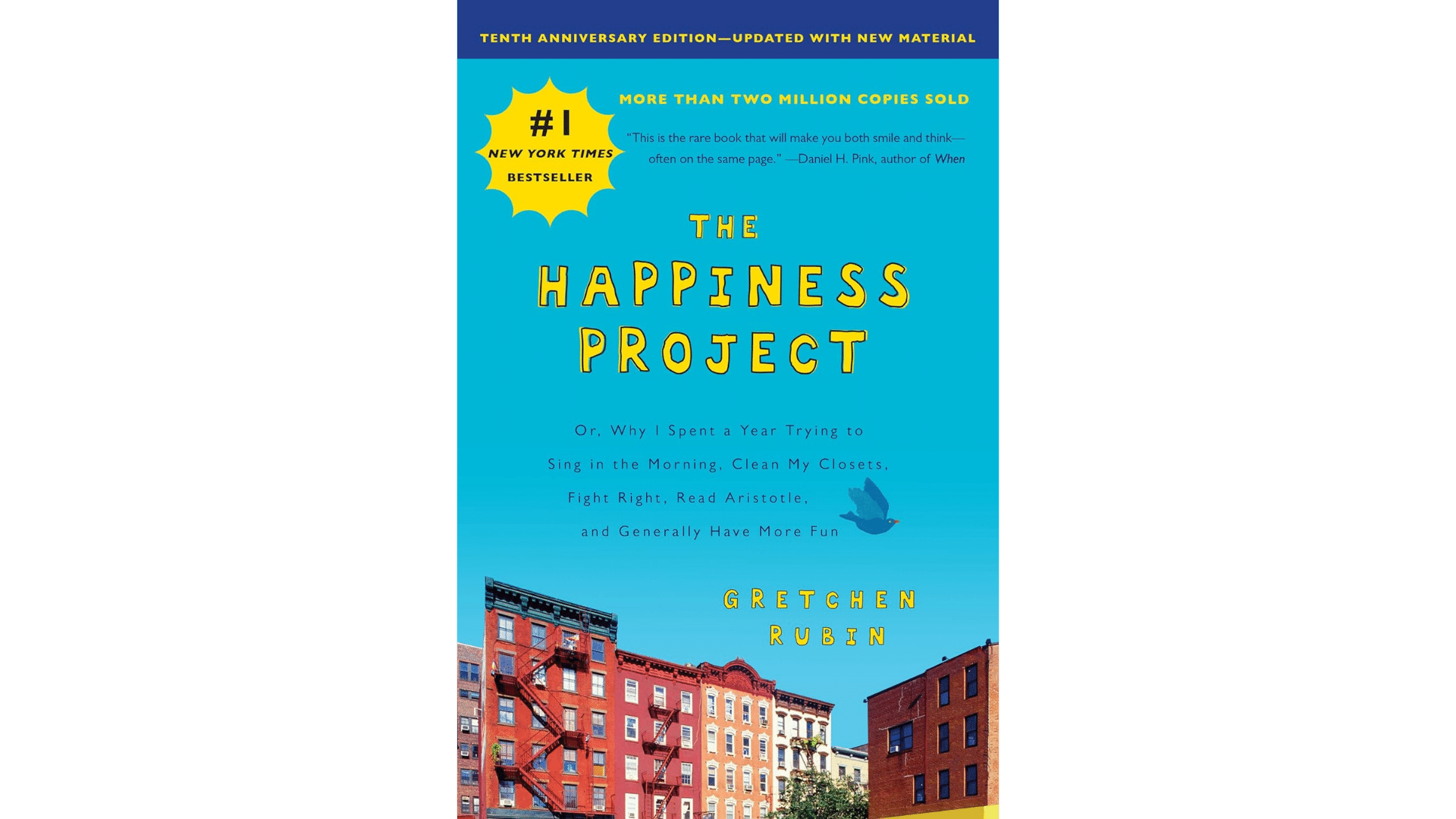
|
Structured around monthly themes, each chapter explores a different aspect of happiness, such as relationships, work, and leisure, as Rubin shares her insights, challenges, and personal revelations.
Throughout the book, Rubin blends personal anecdotes with scientific research, philosophy, and practical advice, creating a relatable and engaging narrative. She delves into the nuances of everyday life, from decluttering her home and cultivating gratitude to embracing new experiences and fostering better habits.
The author's authenticity and humor make the journey relatable, allowing readers to reflect on their own lives and consider how small changes can lead to significant improvements in overall happiness.
''The Happiness Project'' goes beyond traditional self-help approaches by emphasizing the importance of incremental progress and recognizing that happiness is a dynamic and ongoing pursuit.
Through her honest and introspective exploration, Rubin not only provides readers with a blueprint for their happiness projects but also encourages a broader conversation about the nature of joy and fulfillment in our lives.
The book's accessible and practical approach makes it a valuable resource for anyone seeking inspiration and guidance on their journey to a happier life.
2. The Alchemist
by Paulo Coelho
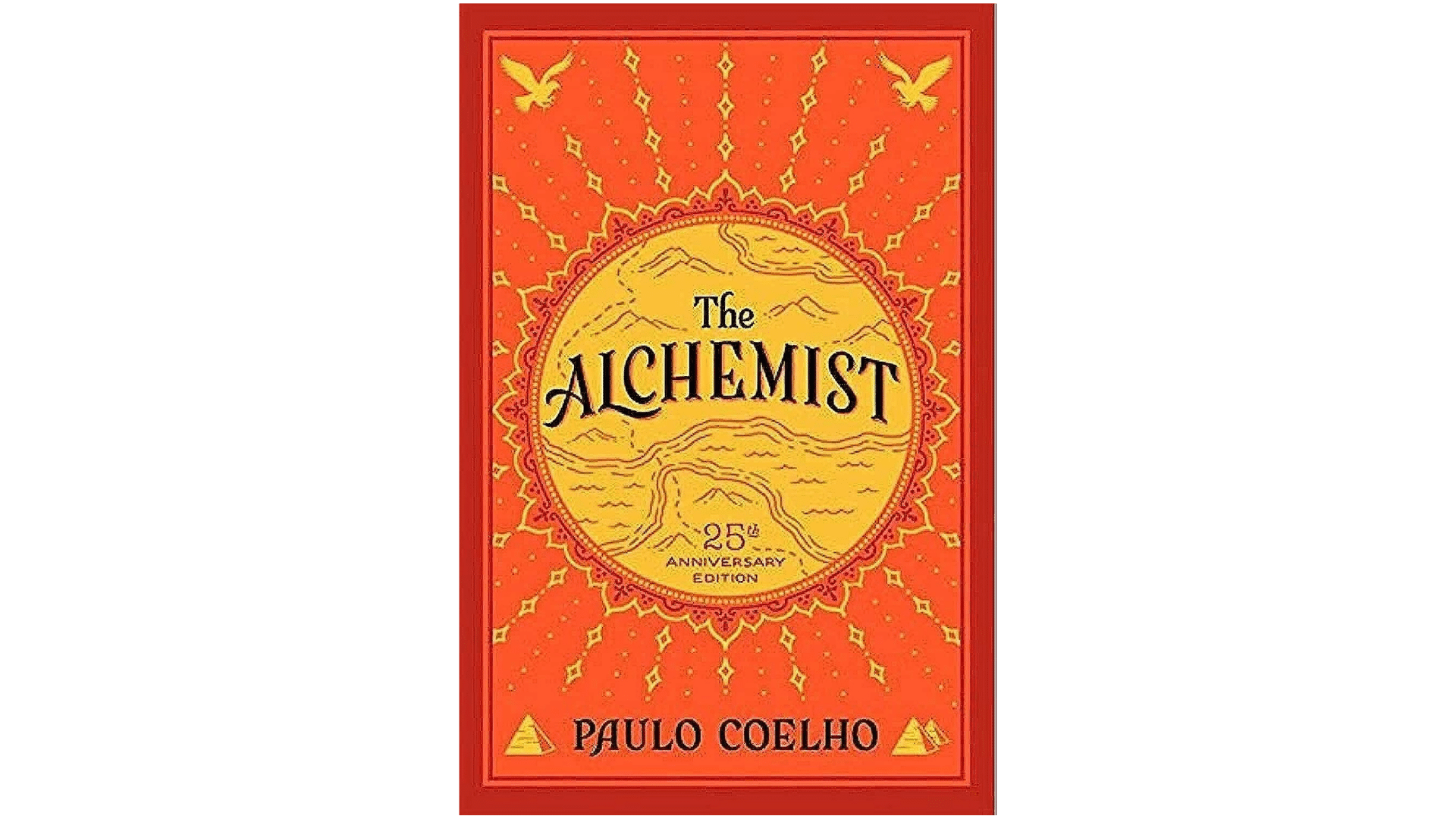
|
Santiago's journey takes him from the familiar fields of Andalusia to the exotic markets of Tangier and the vast Egyptian desert, encountering a series of characters who impart profound lessons about destiny, love, and the pursuit of one's true purpose.
The heart of the novel lies in its exploration of the concept of Personal Legend—the unique calling or purpose that each individual possesses. Coelho imparts timeless wisdom about listening to one's heart, overcoming obstacles, and recognizing the signs that guide us along our paths.
The novel's lyrical prose and allegorical storytelling contribute to its universal appeal, making it a book that resonates with readers of all ages and backgrounds.
''The Alchemist'' is more than a mere narrative; it is a philosophical and spiritual guide that encourages readers to reflect on their own journeys and aspirations. Coelho's masterpiece has become a literary phenomenon, translated into numerous languages and cherished globally for its profound insights into the human experience.
Whether read as an allegory or a straightforward adventure, ''The Alchemist'' continues to inspire and uplift, reminding us of the magic that unfolds when we pursue our dreams with unwavering determination and faith in the journey.
3. Man's Search for Meaning
by Viktor E. Frankl
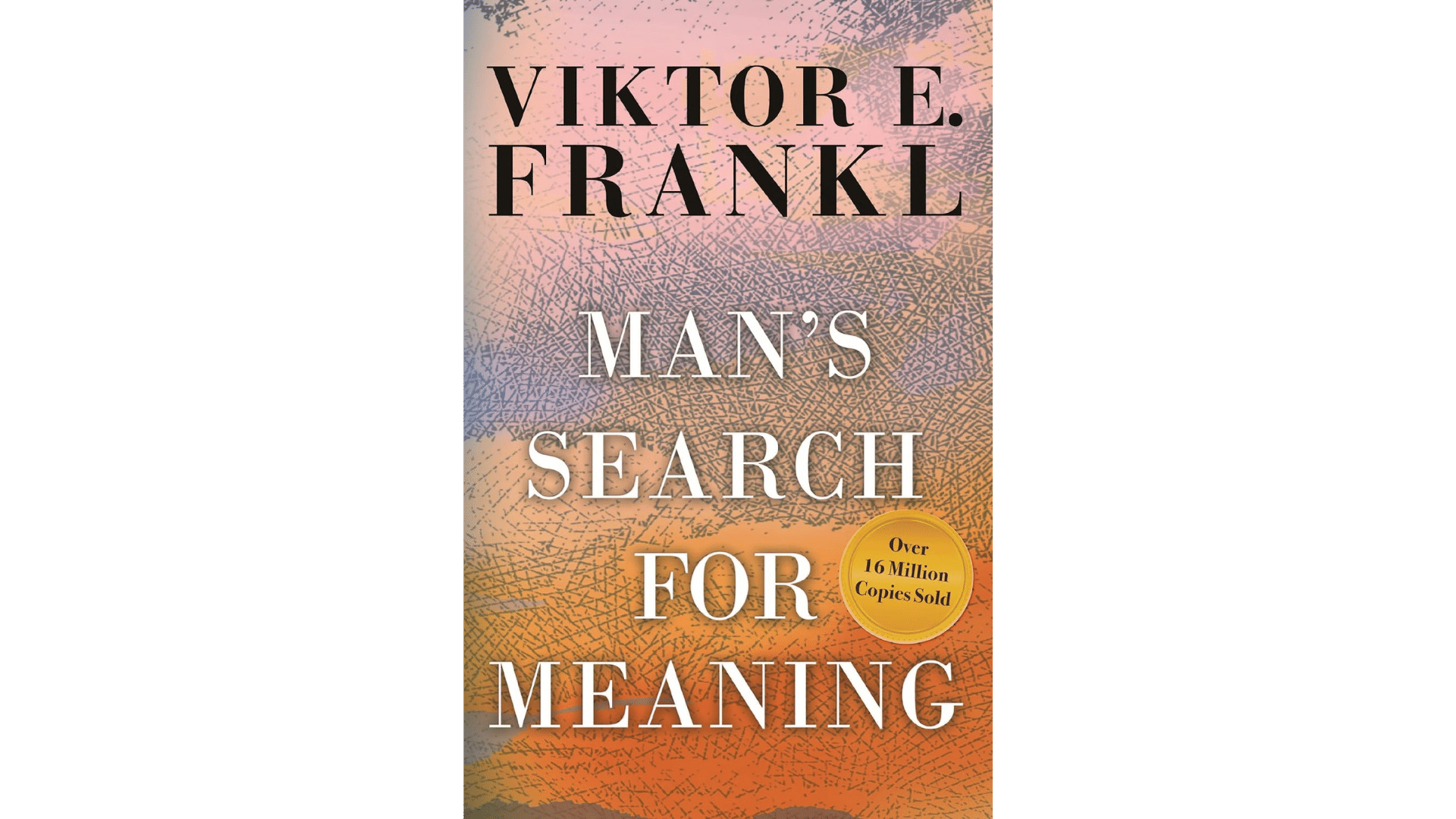
|
Frankl, a Holocaust survivor and psychiatrist, reflects on his experiences in Nazi concentration camps and the psychological resilience that enabled him and others to endure unimaginable suffering. The book is divided into two parts—the first detailing Frankl's own experiences in the camps, and the second outlining his psychotherapeutic approach, known as logotherapy.
In the first part, Frankl shares the harrowing details of life in the concentration camps, providing a stark and raw portrayal of the dehumanization and brutality faced by the prisoners.
Despite the immense physical and emotional pain, Frankl observes that those who found meaning and purpose—whether through love, work, or the prospect of a future goal—were more likely to survive.
The second part of the book introduces logotherapy, emphasizing the importance of finding meaning in all aspects of life. Frankl argues that even in the face of unavoidable suffering, individuals have the freedom to choose their attitude and response. By discovering meaning, individuals can transcend their circumstances and find a sense of purpose that sustains them through adversity.
''Man's Search for Meaning'' is a timeless work that extends beyond its historical context, offering profound insights into the human condition and the pursuit of a meaningful life. Frankl's reflections on suffering, freedom, and the search for purpose continue to resonate with readers, inspiring them to find meaning in their own lives, even amidst the challenges and uncertainties they may face.
4. The Four Agreements
by Don Miguel Ruiz
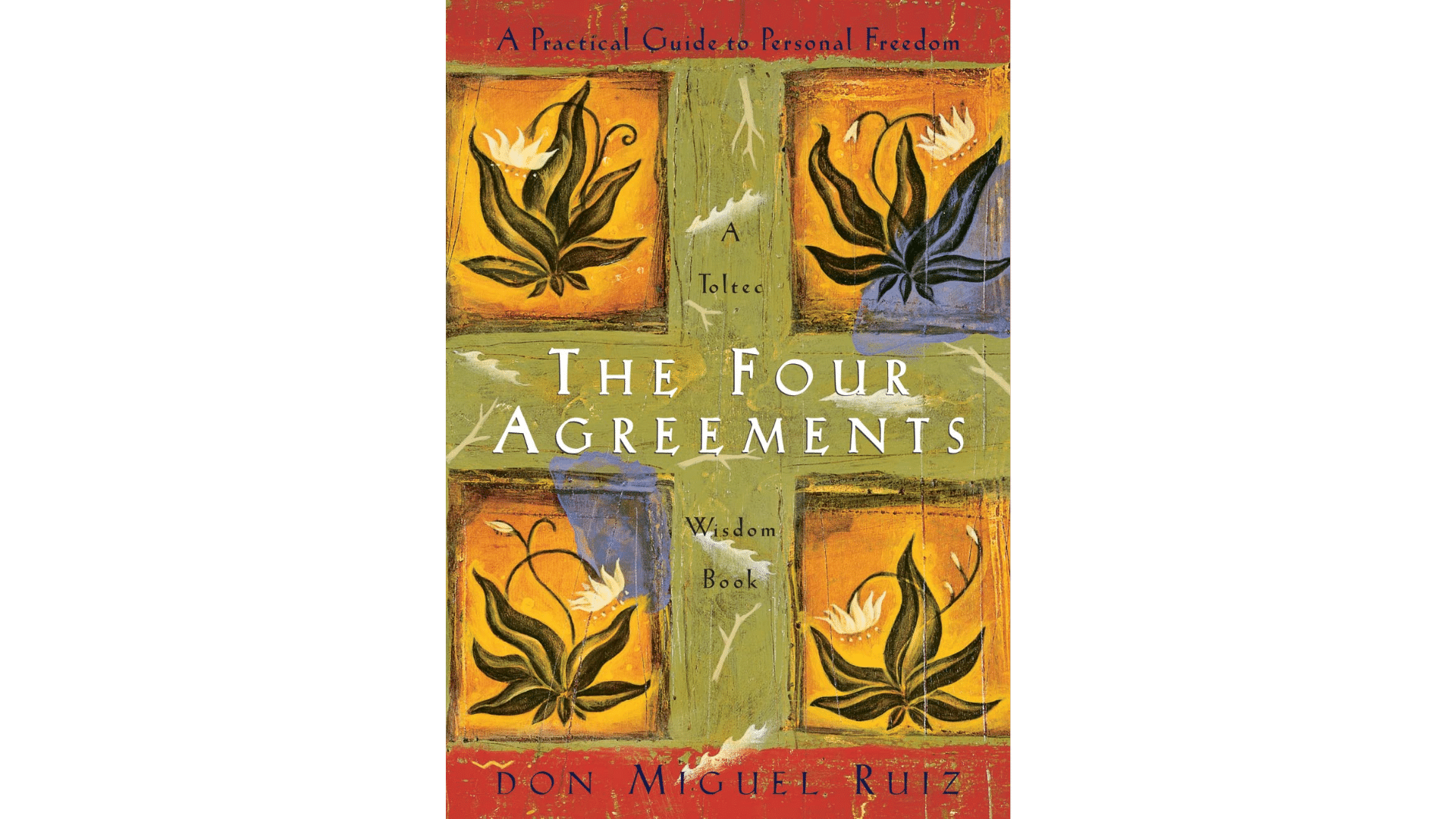
|
Ruiz presents four simple yet profound agreements that, when adopted, have the power to bring about significant positive changes in one's life. The agreements are: Be Impeccable with Your Word, Don't Take Anything Personally, Don't Make Assumptions, and Always Do Your Best.
Ruiz's teachings are rooted in the belief that personal freedom is achievable by breaking free from self-limiting beliefs and societal conditioning. ''Be Impeccable with Your Word'' emphasizes the importance of using language with integrity, avoiding gossip and negativity.
''Don't Take Anything Personally'' encourages individuals to detach from the opinions and actions of others, recognizing that people's behavior is a reflection of their own reality. ''Don't Make Assumptions'' urges against making unfounded interpretations, while ''Always Do Your Best'' emphasizes the commitment to one's personal growth and well-being.
The simplicity and clarity of Ruiz's philosophy make ''The Four Agreements'' accessible and practical for readers seeking a guide to live a life of authenticity and fulfillment. By embracing these agreements, individuals can create a foundation for positive change, break free from self-imposed limitations, and cultivate a mindset that fosters personal and spiritual growth.
The book's timeless wisdom continues to resonate with a diverse audience, making it a valuable resource for those on a journey toward self-discovery and inner peace.
5. The Art of Happiness
by Dalai Lama and Howard Cutler
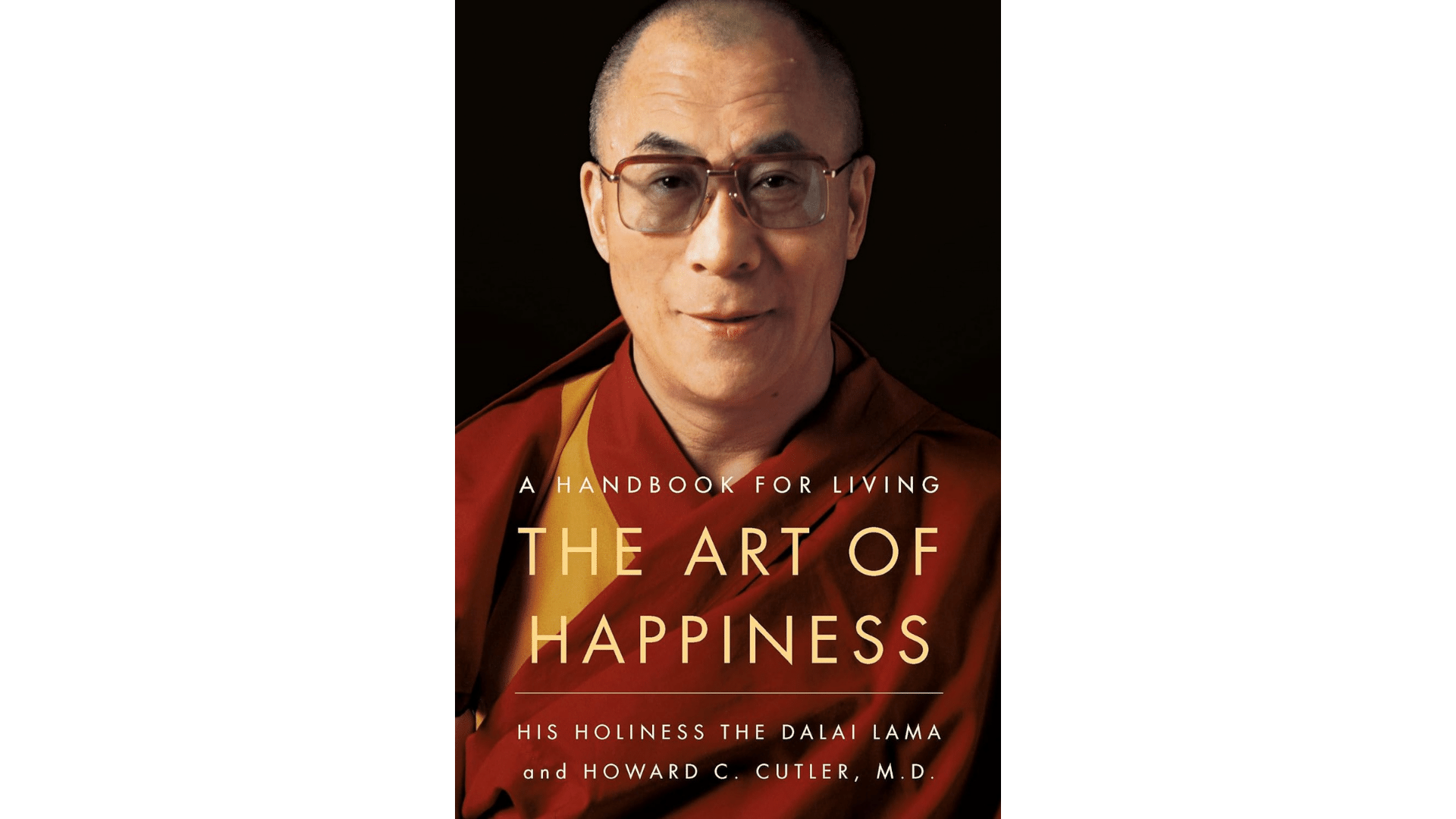
|
Through a series of conversations between the Dalai Lama, the spiritual leader of Tibetan Buddhism, and Howard Cutler, a psychiatrist, the book combines Eastern philosophy with Western psychology to offer a holistic approach to well-being.
The central theme of the book is the idea that happiness is a skill that can be developed and strengthened through intentional practices and shifts in perspective.
The Dalai Lama shares his wisdom on the importance of compassion, altruism, and the cultivation of inner peace, providing readers with guidance on overcoming the challenges and obstacles that life presents.
The book delves into various aspects of the human experience, exploring topics such as the nature of suffering, the role of material wealth in happiness, and the impact of negative emotions. It encourages readers to embrace empathy, mindfulness, and a positive outlook as tools for achieving lasting happiness.
“The Art of Happiness” is not just a theoretical exploration but also a practical guide filled with anecdotes, exercises, and real-life examples to help readers apply the principles discussed in their daily lives.
This collaboration between the Dalai Lama and Cutler offers a harmonious blend of ancient wisdom and contemporary psychological insights, making it a valuable resource for anyone seeking a more joyful and meaningful existence.
6. Eat, Pray, Love
by Elizabeth Gilbert
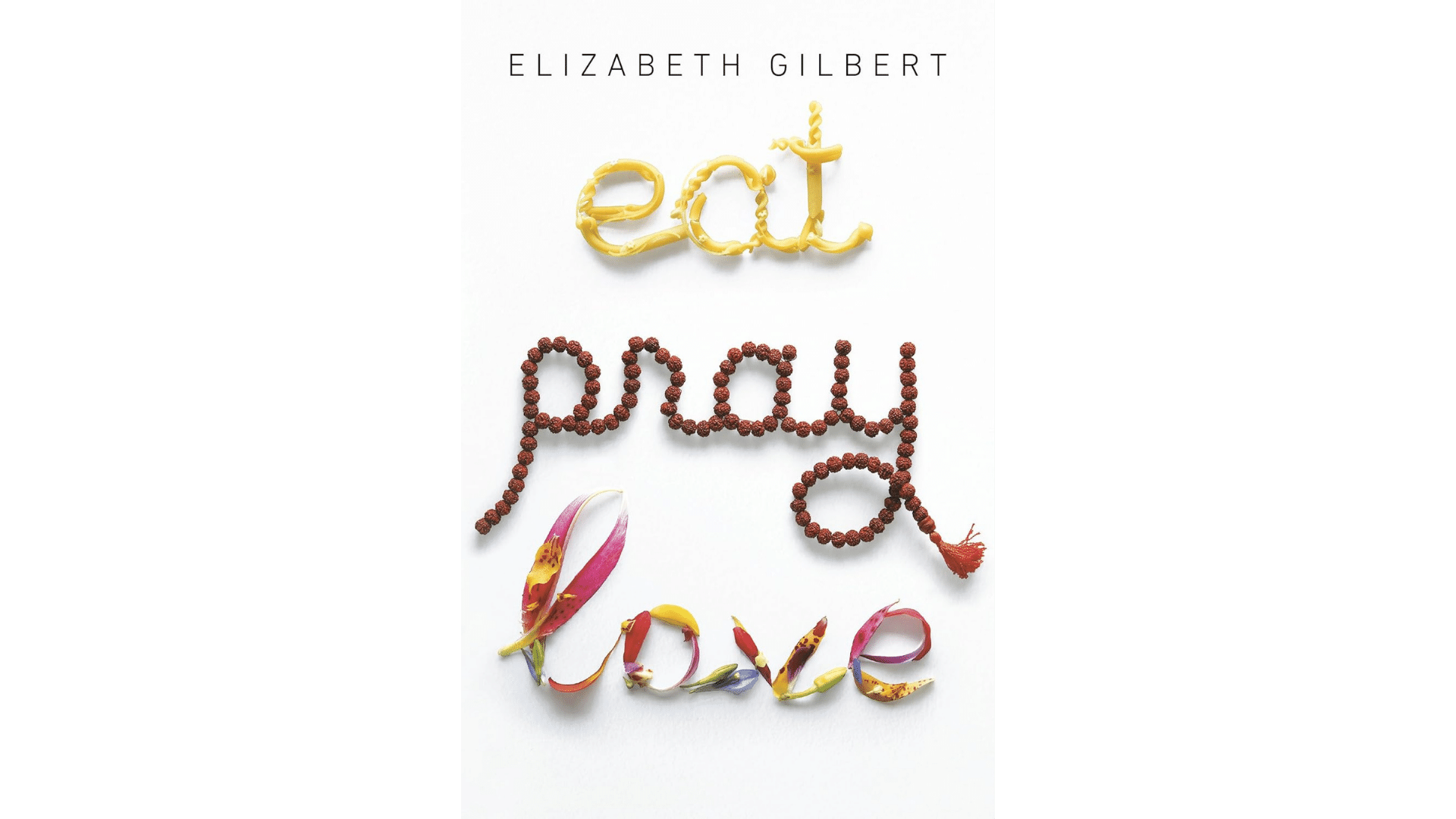
|
Gilbert embarks on a year-long quest, dividing her time among three countries with distinct purposes: Italy for indulging in the pleasures of food, India for spiritual exploration through prayer and meditation, and Bali for the balance of love and finding inner peace.
The book is a candid and introspective narrative that weaves together elements of travelogue, spiritual quest, and personal growth.
In Italy, Gilbert embraces the joy of living and the culinary delights of the country, allowing herself to fully savor the experience. In India, she delves into the spiritual practices of ashram life, seeking solace and connection with the divine.
Finally, in Bali, Gilbert finds love and a sense of equilibrium, ultimately realizing that true happiness comes from within.
The memoir resonates with readers as Gilbert's journey represents a universal quest for meaning, fulfillment, and balance in life.
Through her honest and relatable storytelling, she explores themes of resilience, self-discovery, and the transformative power of embracing one's own path.
“Eat, Pray, Love” is not just a travelogue but a soul-searching narrative that inspires readers to embark on their own journeys of self-discovery and find happiness on their terms.
7. Ikigai The Japanese Secret to a Long and Happy Life
by Héctor García and Francesc Miralles
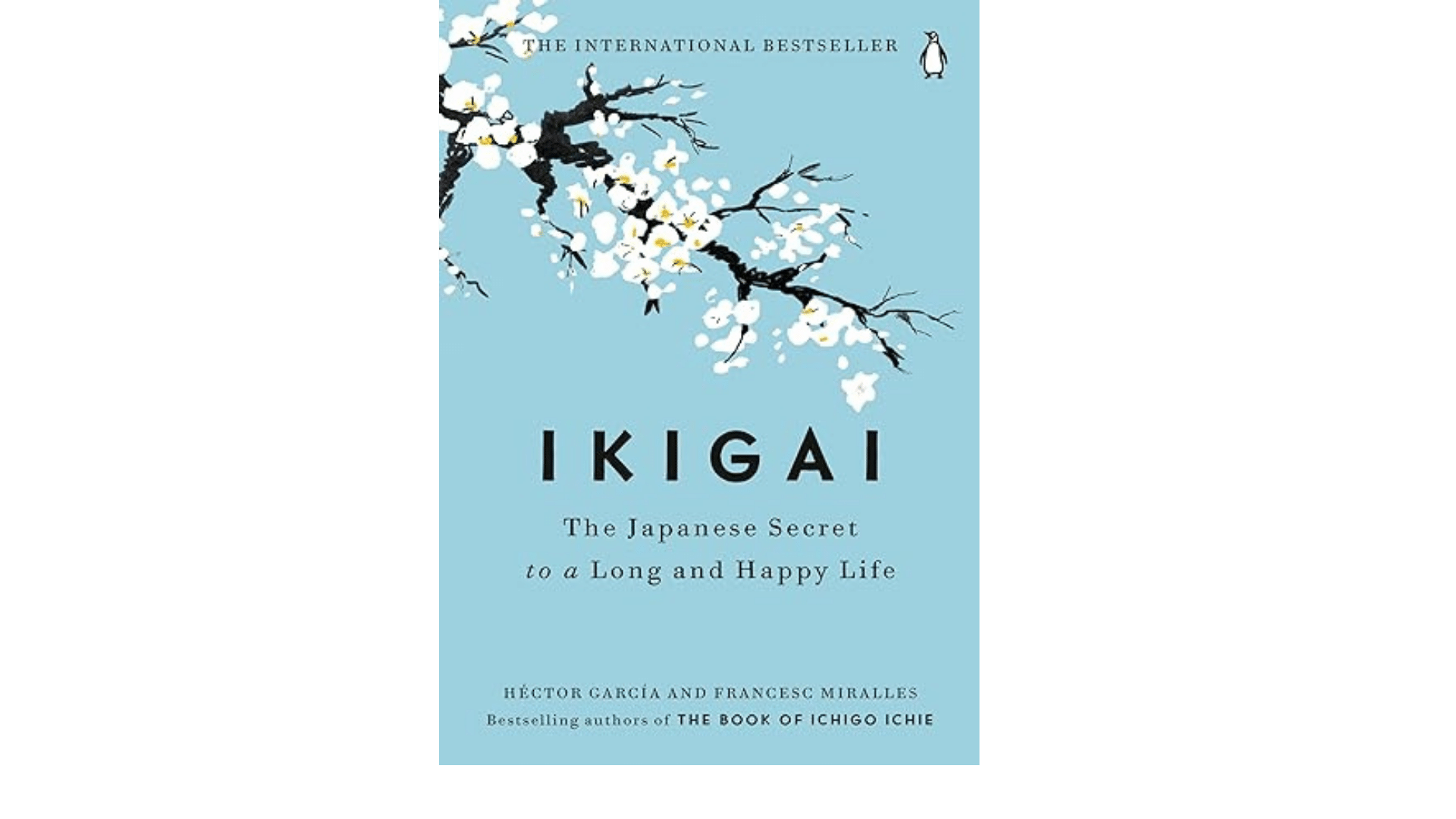
|
The authors delve into the lifestyle practices of the residents of Okinawa, one of the world's Blue Zones known for longevity, to unravel the secrets of a purposeful and contented life.
The book introduces readers to the intersection of passion, vocation, mission, and profession—the sweet spot where one's talents, values, and interests align. Drawing on the experiences of individuals who have found their ikigai, García and Miralles provide practical insights and actionable advice to help readers discover their own purpose and integrate it into their daily lives.
“Ikigai” not only explores the cultural and philosophical aspects of this Japanese concept but also intertwines scientific research, psychology, and personal stories, creating a well-rounded guide to living a fulfilling and balanced life.
By emphasizing the importance of connecting with one's inner self and fostering a sense of purpose, the book offers a roadmap for readers seeking a more meaningful and joyful existence.
8. The Power of Now
by Eckhart Tolle
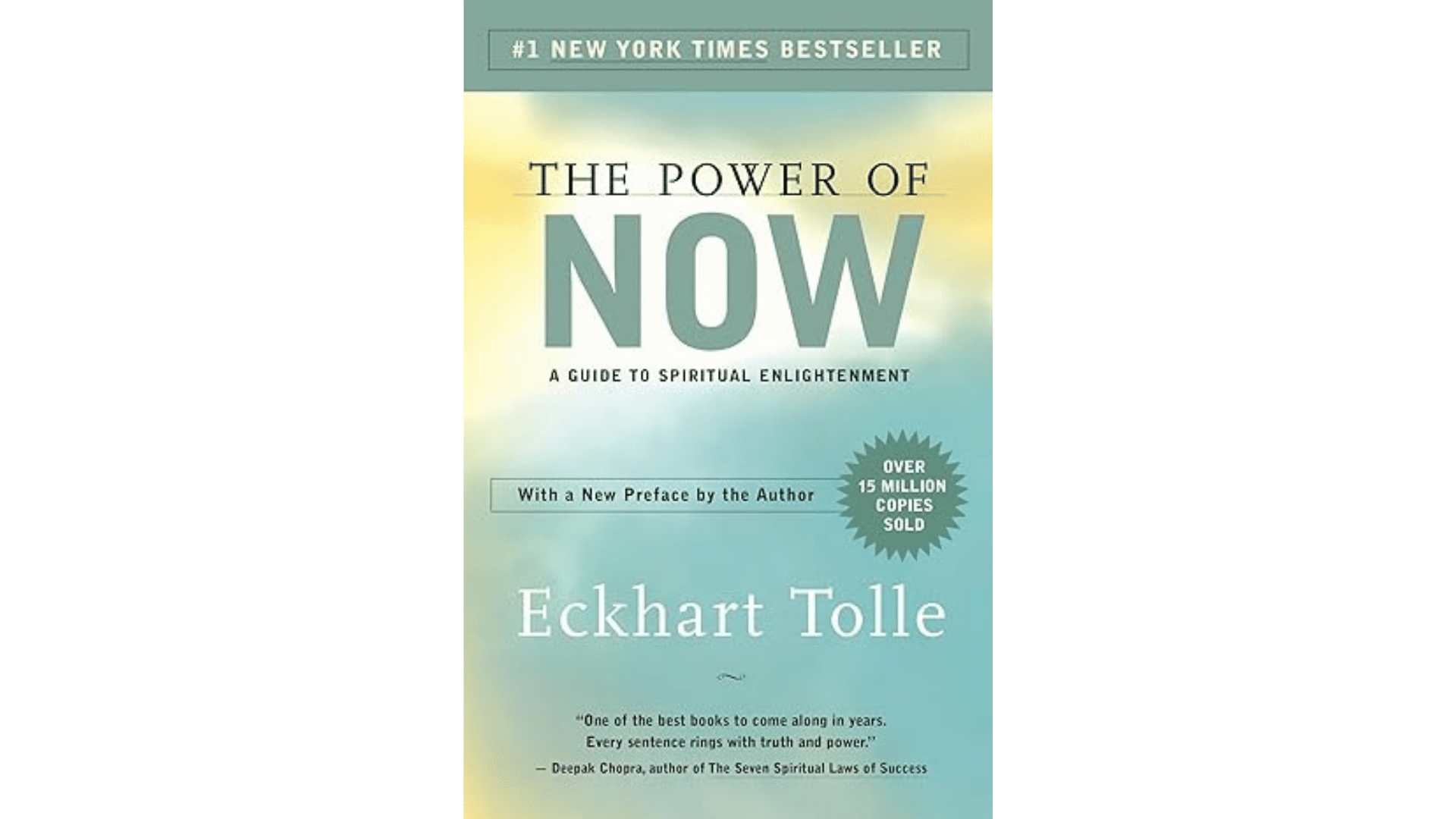
|
The book provides practical insights and exercises to help readers break free from the grip of incessant thinking, leading to a deeper understanding of the self and the realization of true happiness.
Tolle's teachings draw from a variety of spiritual traditions and philosophies, offering a universal perspective on the timeless wisdom of being present. The book invites readers to embrace mindfulness and surrender to the now, shedding the layers of mental noise that hinder a direct connection with the essence of life.
Tolle introduces the concept of “presence
9. The Little Book of Hygge
by Meik Wiking
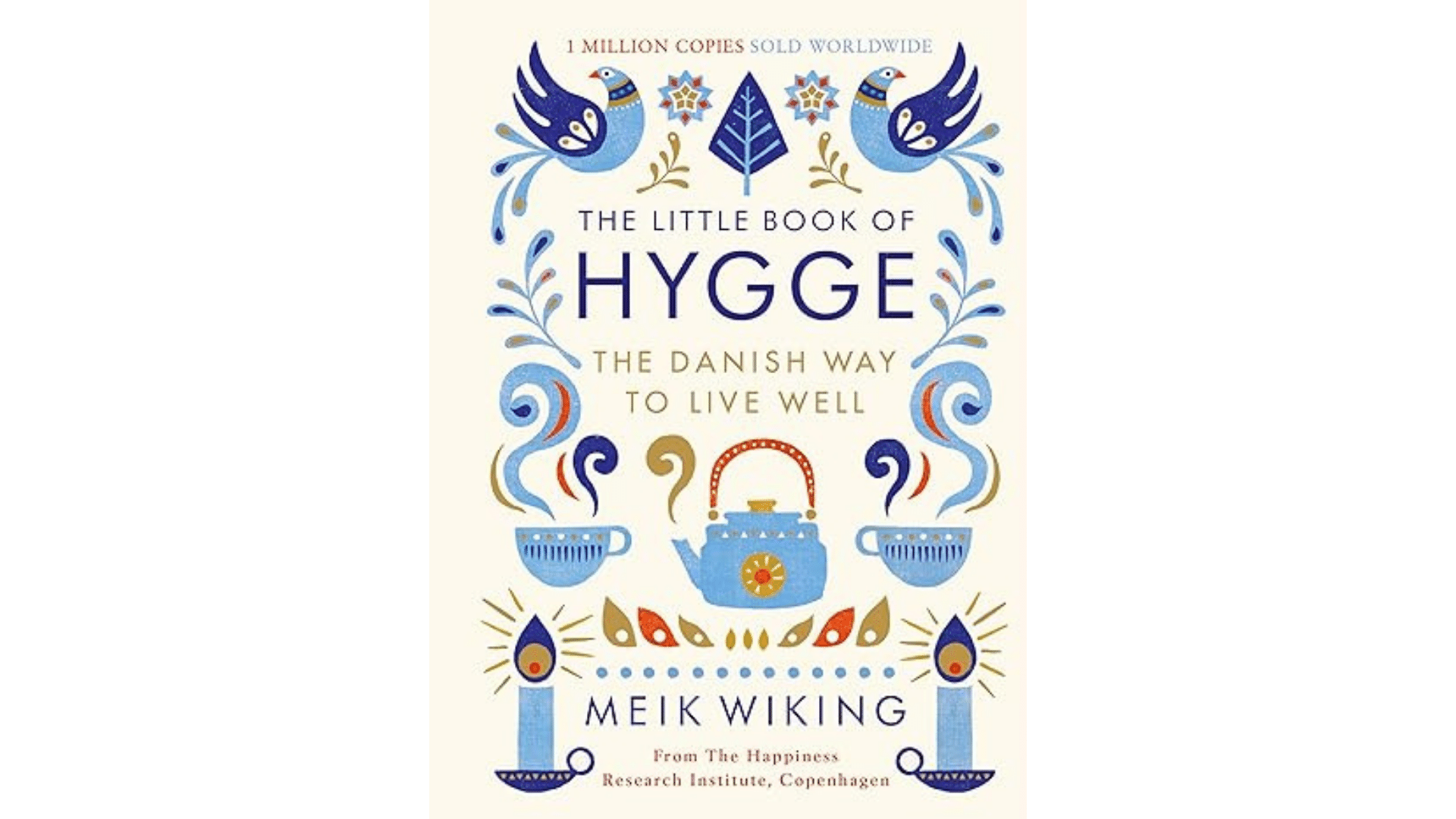
|
The book serves as a practical guide to infusing everyday life with hygge, offering insights into creating warmth, connection, and joy in various aspects of one's environment and activities.
Wiking introduces readers to the key elements of hygge, such as creating a comfortable and inviting atmosphere at home, enjoying simple pleasures like candlelight and comfort food, and fostering meaningful connections with friends and family. The book also explores the importance of embracing the present moment and finding happiness in small, everyday rituals.
“The Little Book of Hygge” not only provides a cultural perspective on well-being but also offers actionable tips and suggestions for incorporating hygge into one's life. Wiking's charming and accessible writing style, coupled with anecdotes and statistical insights, makes this book an engaging and uplifting read.
Whether you're looking to bring more coziness into your home or seeking a guide to cultivating a happier lifestyle, ''The Little Book of Hygge'' offers a warm and inviting roadmap to embracing the Danish art of happiness.
10. The Gifts of Imperfection
by Brené Brown
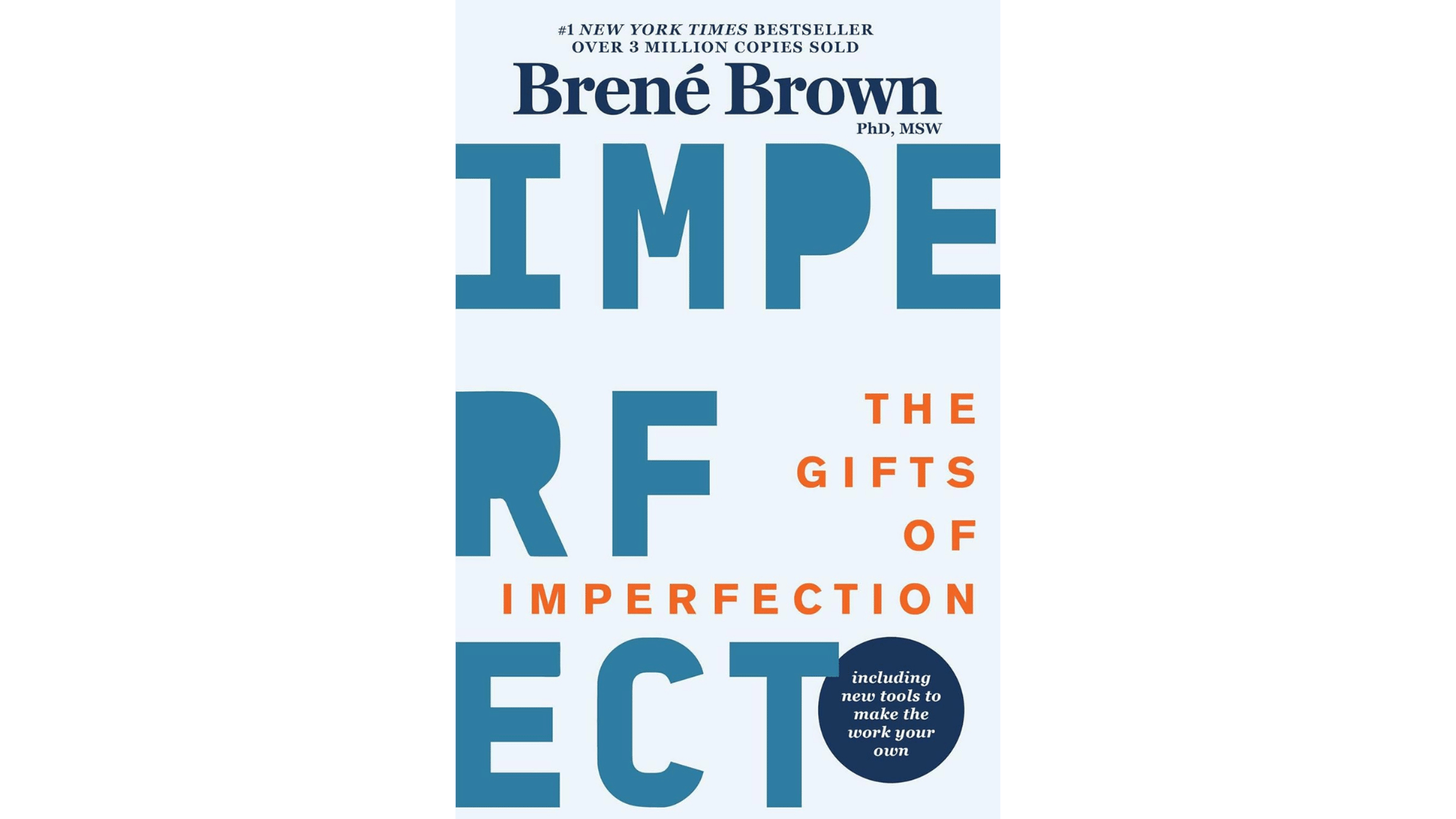
|
Brown introduces guideposts for cultivating a more authentic and fulfilling life, emphasizing the importance of self-compassion, resilience, and the courage to be vulnerable.
The book is structured around ten guideposts, each representing a quality or practice that contributes to a wholehearted and joyful existence.
Brown delves into topics such as cultivating self-compassion, letting go of perfectionism, and developing a sense of belonging. Through relatable anecdotes, research findings, and reflective exercises, she offers a roadmap for readers to navigate the complexities of shame and self-worth.
“The Gifts of Imperfection
11. Siddhartha
by Hermann Hesse

|
Set against the backdrop of ancient India, the narrative unfolds as Siddhartha rejects his privileged life as the son of a Brahmin in pursuit of deeper meaning. The novel explores various aspects of human existence, including the pursuit of knowledge, the temptations of worldly pleasures, and the quest for spiritual awakening.
Hesse's lyrical prose captures Siddhartha's evolution as he encounters different philosophical paths, from asceticism to materialism, ultimately realizing that true wisdom comes from a balance of both.
The river, a recurring motif in the story, symbolizes the flow of life and the interconnectedness of all things. Siddhartha's journey mirrors the quest for self-discovery and the timeless search for purpose and inner peace.
“Siddhartha” stands as a timeless exploration of Eastern philosophy, delving into themes of transcendence, self-realization, and the unity of all existence. The novel's enduring appeal lies in its ability to resonate with readers across cultures and generations, inspiring reflection on the universal human journey toward enlightenment and the search for a meaningful life.
12. The Book Thief
by Markus Zusak
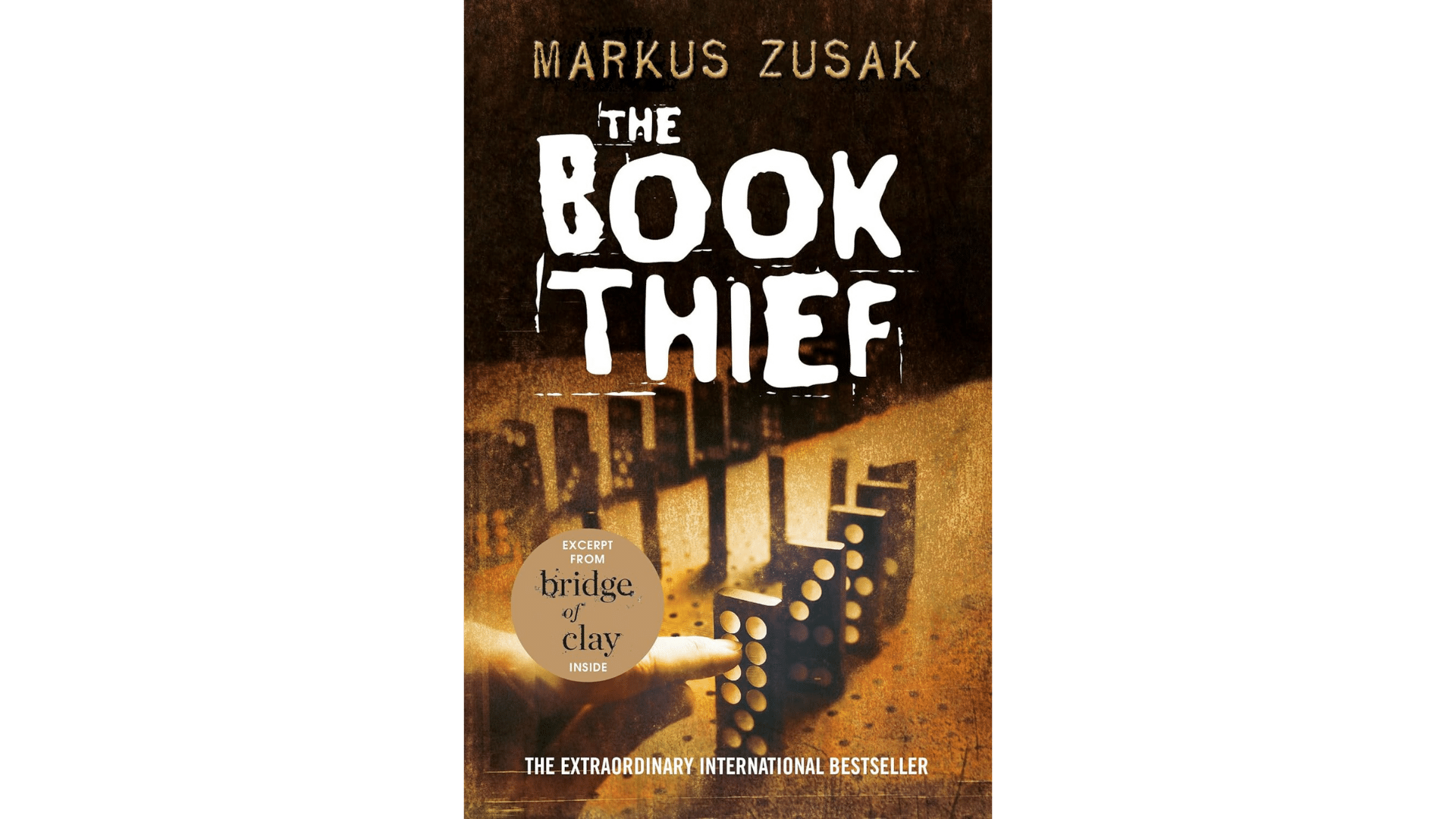
|
Liesel steals books and shares them with others, finding solace and connection through the written word in a society marred by war and oppression.
The novel explores themes of resilience, love, and the impact of storytelling on the human spirit. Liesel's relationships with her foster parents, friends, and a Jewish man hiding in their basement illustrate the enduring power of compassion and connection in the face of adversity.
Zusak's narrative style, characterized by lyrical prose and unique perspectives, adds a layer of depth to the storytelling, making Death a compassionate and contemplative observer.
“The Book Thief” is a testament to the redemptive and transformative nature of literature, emphasizing the importance of words in preserving humanity and offering hope during the darkest times. It's a powerful and emotionally resonant work that reminds readers of the enduring strength found in stories, love, and the indomitable spirit of the human soul.
13. The Joy of Living
by Yongey Mingyur Rinpoche
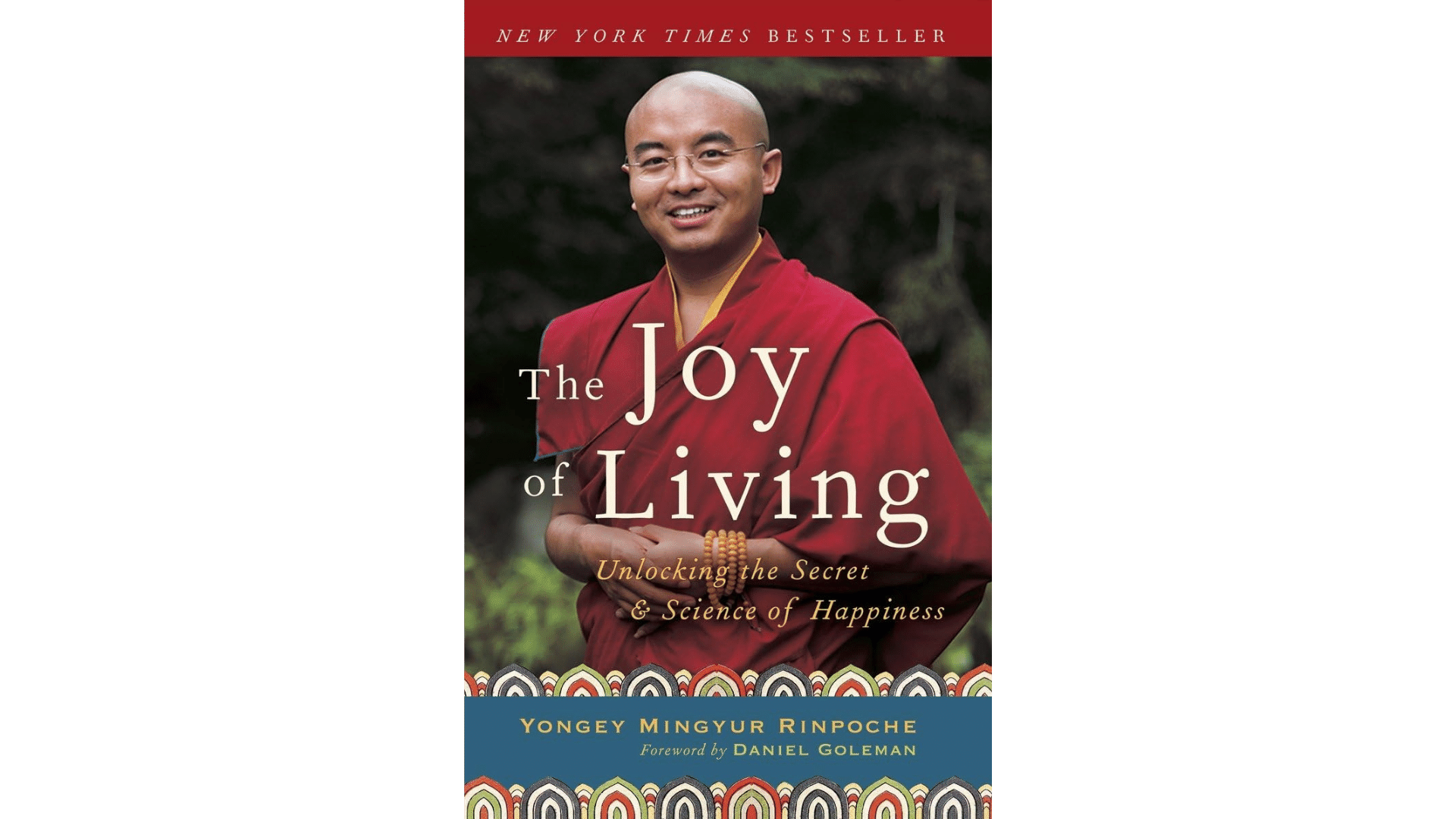
|
As a Tibetan Buddhist master and meditation practitioner, Rinpoche combines his spiritual teachings with scientific perspectives, creating a bridge between Eastern philosophy and Western understanding. The book introduces readers to the principles of meditation, mindfulness, and consciousness, providing practical guidance on how to cultivate joy and well-being in daily life.
Mingyur Rinpoche draws on his personal experiences, including his time spent in solitary retreat and his encounters with scientific researchers, to present a comprehensive approach to happiness. He emphasizes the transformative power of meditation and mindfulness in rewiring the brain and cultivating a deep sense of inner peace.
Mingyur Rinpoche's accessible and engaging writing style, coupled with anecdotes and guided exercises, makes the teachings applicable to individuals seeking to integrate these practices into their own lives.
“The Joy of Living” goes beyond traditional self-help books by blending spiritual insights with scientific evidence, offering a holistic perspective on the pursuit of happiness.
The book is an inspiring and practical guide for those interested in exploring the intersection of mindfulness, neuroscience, and the timeless quest for joy and fulfillment.
14. Wonder
by R.J. Palacio
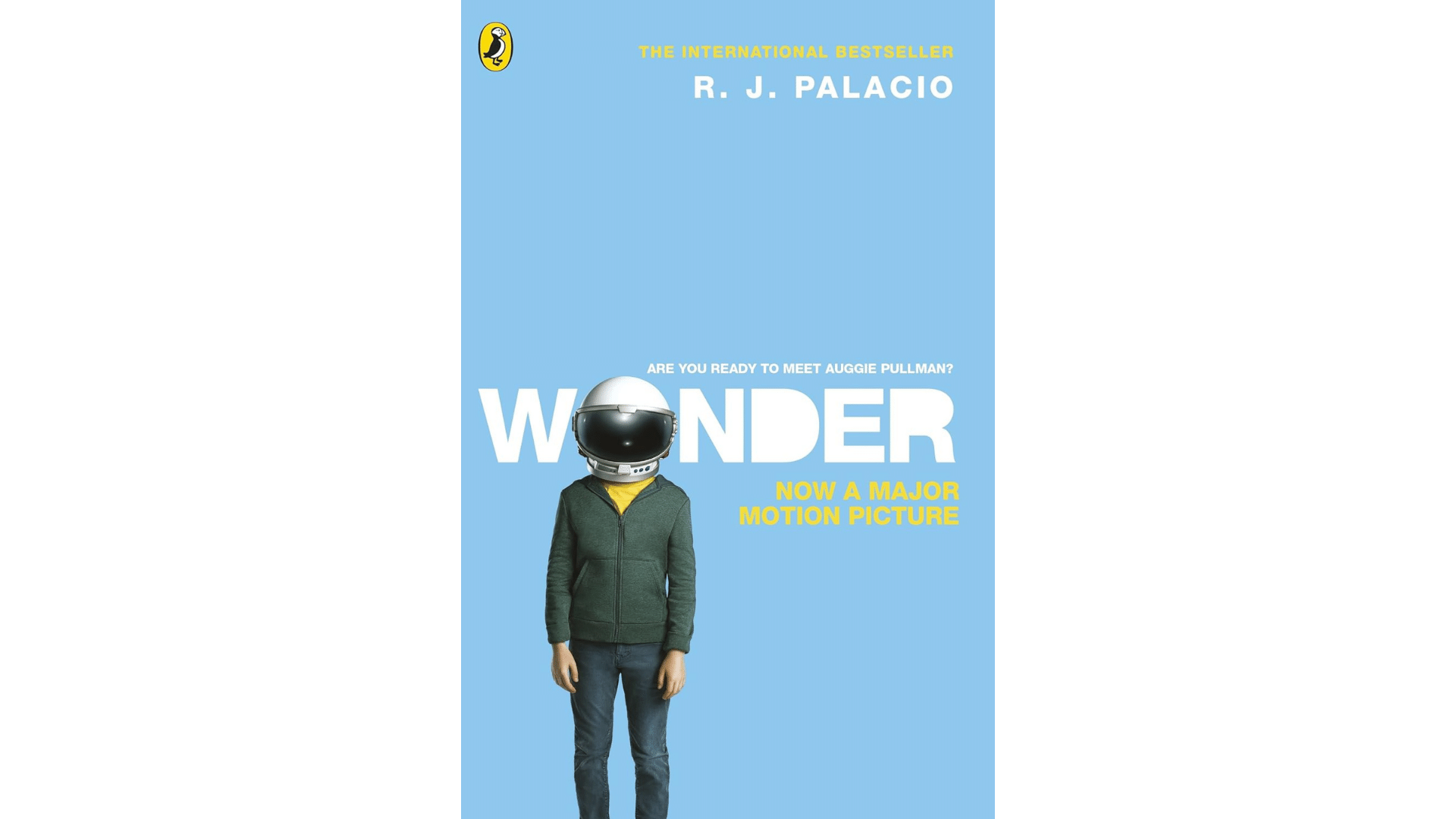
|
The story unfolds through multiple perspectives, including Auggie's, his family, and his friends, providing a nuanced exploration of empathy, kindness, and the beauty found in human diversity. Auggie's journey is not just one of physical appearance but a universal tale of resilience, friendship, and the power of acceptance.
The novel tackles themes of bullying, compassion, and self-discovery, inviting readers to consider the importance of empathy and understanding.
Auggie's unique voice and genuine personality make him a memorable protagonist, and his experiences resonate with readers of all ages. “Wonder” goes beyond being a story about disability; it is a celebration of differences, a call for kindness, and a reminder that true beauty lies in the goodness of the heart.
R.J. Palacio's storytelling is both sensitive and powerful, creating a narrative that has become a contemporary classic. “Wonder
15. The 7 Habits of Highly Effective People
by Stephen R. Covey
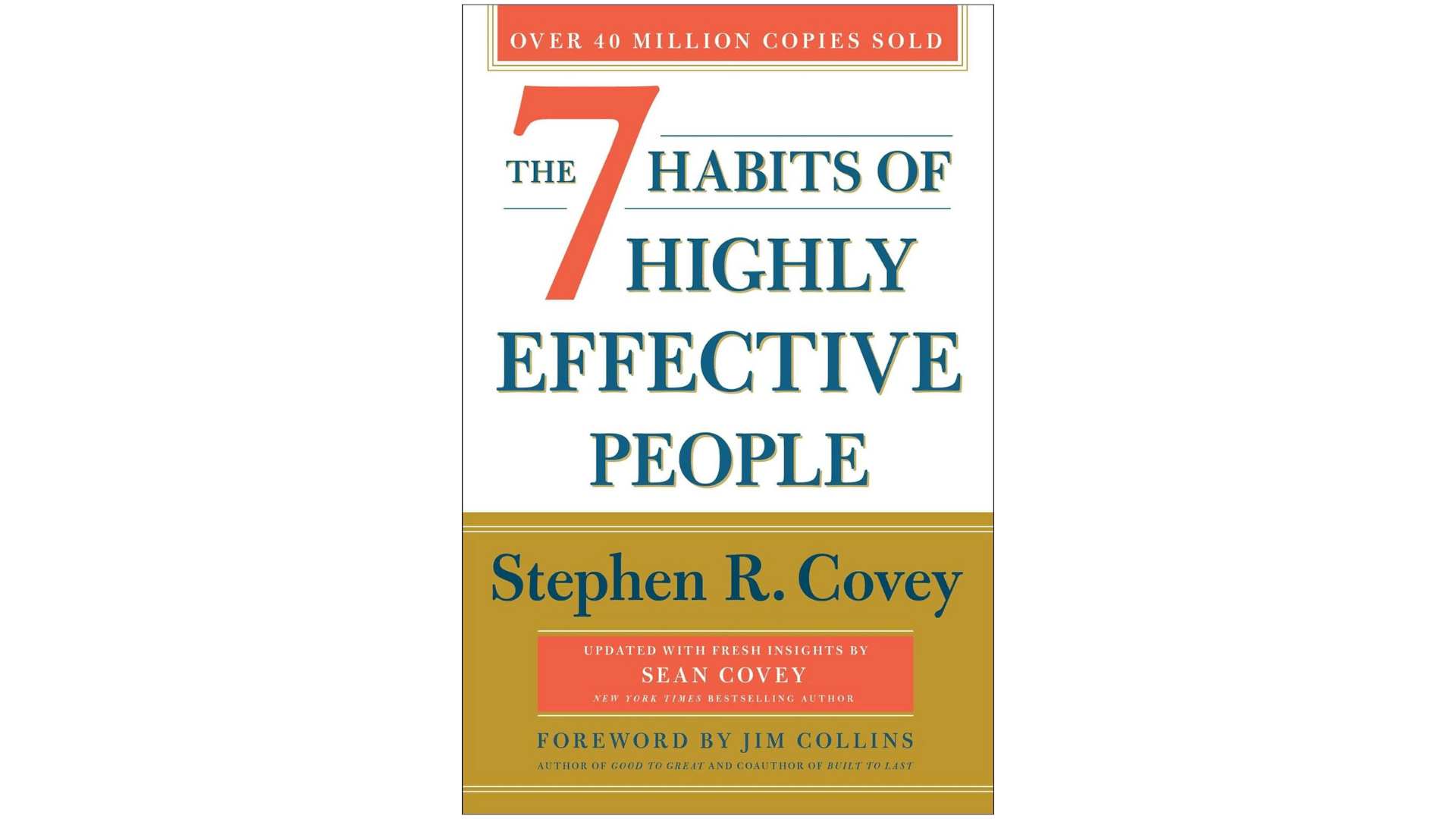
|
Covey introduces a holistic and principle-centered approach to effectiveness, encouraging readers to cultivate habits that lead to both success and fulfillment. The seven habits presented in the book are: Be Proactive, Begin with the End in Mind, Put First Things First, Think Win/Win, Seek First to Understand, Then to Be Understood, Synergize, and Sharpen the Saw.
Covey's principles are rooted in the belief that true effectiveness emerges from a foundation of character and ethical decision-making. The book advocates for a paradigm shift from focusing solely on time management and efficiency to embracing a more profound understanding of one's values, purpose, and relationships.
Covey emphasizes the importance of personal responsibility, goal-setting, and collaboration, providing a comprehensive framework for achieving long-term success and happiness.
“The 7 Habits” has had a lasting impact on individuals seeking personal and professional development, offering a timeless guide for anyone aspiring to lead a purpose-driven and effective life.
Covey's approach, blending timeless wisdom with contemporary insights, has solidified the book's place as a classic in the self-help genre, providing a roadmap for personal growth and success that transcends cultural and professional boundaries.
Embark on a literary adventure with these 15 must-read books, each offering a unique perspective on happiness.
Whether through self-help guides, timeless classics, or gripping novels, these books have the power to inspire, uplift, and guide you on your own journey towards a more joyful and fulfilling life. Happy reading!

0 Comments